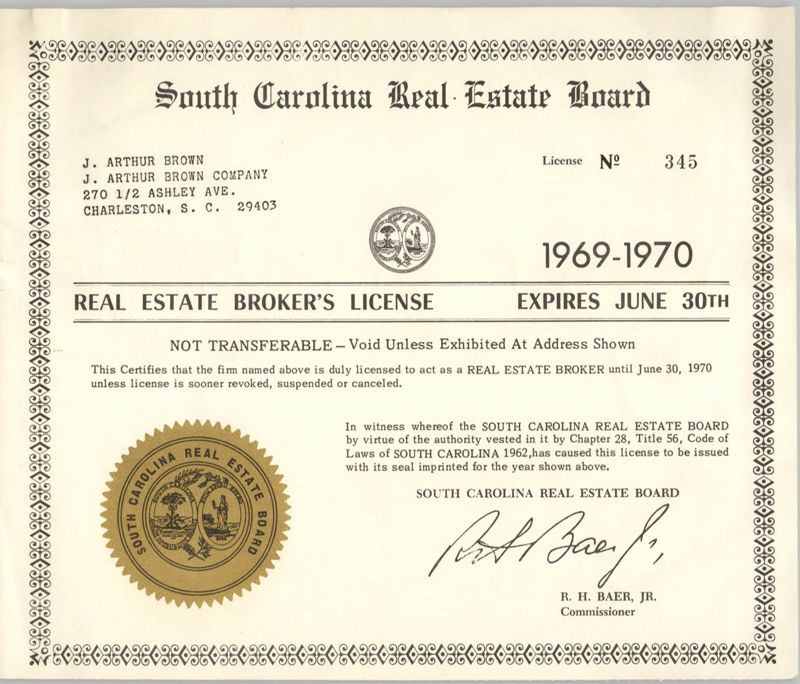
Taxes on real estate are an integral part of any financial planning, whether you're selling your property or investing in it. Taxes for real estate vary from one state to the next. It is important to be familiar with the laws in your state to ensure that you are only paying the right amount.
Capital gains as well as property taxes are the biggest taxes to be worried about. Real estate transactions may also be subject to a range of transfer taxes. These taxes include local and state fees as well as a tax levied by a municipality or county.
Real estate agents who are self-employed must file their own tax returns. This means that they must be aware all expenses and tax deductions for the year.
Agents can deduct costs such as office and equipment expenses, insurance costs, and the cost of marketing and advertising. Agents can also deduct advertising and marketing expenses such as developing their listing or promoting it.

Real estate agents are sometimes employees. Others are contractors. Employees have their taxes automatically withheld from their income, while contractors are responsible for paying their own taxes.
What are some of the most common tax deductions that real estate agents receive?
Real estate agents may be eligible to receive a variety of tax deductions that most people don't know about. These include appraisal fees, insurance, advertising and escrow fees. These fees can be deducted from commissions.
How do real estate agents pay taxes?
If you are a self-employed realty agent, you will need to make quarterly estimated tax payment. These estimates will help you calculate your tax liability and determine how much you need to pay. FlyFin's Estimated Quarterly tax Calculator is a good tool to assist you with this task.
A few tax deductions are available for real estate agents. You can also deduct the cost of renewing your license or dues to other organizations. The cost of your Errors or Omission (E&O), Insurance can also be deducted from your commission as long as the broker is not withholding this cost.
It is important to keep track and record all your expenses throughout the year to reduce your tax bill. Having well-organized documents and accounts can help you claim tax deductions and avoid unnecessary penalties and fines in the future.

Your vehicle can be used for business purposes, and you are eligible to receive a tax deduction as long as it is registered and insure. Self-employed workers may also be eligible to deduct the cost for health insurance.
What are the best ways for a realty agent to pay taxes?
You must keep track of your expenses as a self-employed realtor and file your taxes on the due date. There are constant changes to the tax code, so be aware of any possible impacts on your financial situation. As long as your business is not unusual and your expenses are reasonable, you can deduct your legitimate business expenses.
FAQ
What is a reverse mortgage?
Reverse mortgages are a way to borrow funds from your home, without having any equity. It allows you to borrow money from your home while still living in it. There are two types: government-insured and conventional. Conventional reverse mortgages require you to repay the loan amount plus an origination charge. FHA insurance will cover the repayment.
Is it possible to sell a house fast?
It may be possible to quickly sell your house if you are moving out of your current home in the next few months. However, there are some things you need to keep in mind before doing so. First, you must find a buyer and make a contract. Second, prepare your property for sale. Third, it is important to market your property. Lastly, you must accept any offers you receive.
What are the three most important things to consider when purchasing a house
Location, price and size are the three most important aspects to consider when purchasing any type of home. Location refers the area you desire to live. Price refers how much you're willing or able to pay to purchase the property. Size refers how much space you require.
How do you calculate your interest rate?
Market conditions impact the rates of interest. In the last week, the average interest rate was 4.39%. Divide the length of your loan by the interest rates to calculate your interest rate. If you finance $200,000 for 20 years at 5% annually, your interest rate would be 0.05 x 20 1.1%. This equals ten basis point.
What should I look for when choosing a mortgage broker
Mortgage brokers help people who may not be eligible for traditional mortgages. They compare deals from different lenders in order to find the best deal for their clients. Some brokers charge a fee for this service. Others provide free services.
What are the pros and cons of a fixed-rate loan?
Fixed-rate mortgages allow you to lock in the interest rate throughout the loan's term. This guarantees that your interest rate will not rise. Fixed-rate loans have lower monthly payments, because they are locked in for a specific term.
How much should I save before I buy a home?
It depends on how long you plan to live there. Save now if the goal is to stay for at most five years. But, if your goal is to move within the next two-years, you don’t have to be too concerned.
Statistics
- Over the past year, mortgage rates have hovered between 3.9 and 4.5 percent—a less significant increase. (fortunebuilders.com)
- When it came to buying a home in 2015, experts predicted that mortgage rates would surpass five percent, yet interest rates remained below four percent. (fortunebuilders.com)
- It's possible to get approved for an FHA loan with a credit score as low as 580 and a down payment of 3.5% or a credit score as low as 500 and a 10% down payment.5 Specialty mortgage loans are loans that don't fit into the conventional or FHA loan categories. (investopedia.com)
- The FHA sets its desirable debt-to-income ratio at 43%. (fortunebuilders.com)
- 10 years ago, homeownership was nearly 70%. (fortunebuilders.com)
External Links
How To
How to Manage a Property Rental
Renting your home can be a great way to make extra money, but there's a lot to think about before you start. We'll show you what to consider when deciding whether to rent your home and give you tips on managing a rental property.
Here are the basics to help you start thinking about renting out a home.
-
What is the first thing I should do? Consider your finances before you decide whether to rent out your house. If you have debts, such as credit card bills or mortgage payments, you may not be able to afford to pay someone else to live in your home while you're away. You should also check your budget - if you don't have enough money to cover your monthly expenses (rent, utilities, insurance, etc. It may not be worth it.
-
How much does it cost for me to rent my house? It is possible to charge a higher price for renting your house if you consider many factors. These factors include your location, the size of your home, its condition, and the season. Prices vary depending on where you live so it's important that you don't expect the same rates everywhere. The average market price for renting a one-bedroom flat in London is PS1,400 per month, according to Rightmove. This means that you could earn about PS2,800 annually if you rent your entire home. This is a good amount, but you might make significantly less if you let only a portion of your home.
-
Is it worth the risk? You should always take risks when doing something new. But, if it increases your income, why not try it? Be sure to fully understand what you are signing before you sign anything. Not only will you be spending more time away than your family, but you will also have to maintain the property, pay for repairs and keep it clean. These are important issues to consider before you sign up.
-
Is there any benefit? Now that you have an idea of the cost to rent your home, and are confident it is worth it, it is time to consider the benefits. Renting your home is a great way to get out of the grind and enjoy some peace from your day. You will likely find it more enjoyable than working every day. If you plan well, renting could become a full-time occupation.
-
How can I find tenants? Once you've made the decision that you want your property to be rented out, you must advertise it correctly. Listing your property online through websites like Rightmove or Zoopla is a good place to start. Once potential tenants reach out to you, schedule an interview. This will help you evaluate their suitability as well as ensure that they are financially secure enough to live in your home.
-
How can I make sure I'm covered? If you fear that your home will be left empty, you need to ensure your home is protected against theft, damage, or fire. You'll need to insure your home, which you can do either through your landlord or directly with an insurer. Your landlord will usually require you to add them as additional insured, which means they'll cover damages caused to your property when you're present. If you are not registered with UK insurers or if your landlord lives abroad, however, this does not apply. You will need to register with an International Insurer in this instance.
-
If you work outside of your home, it might seem like you don't have enough money to spend hours looking for tenants. Your property should be advertised with professionalism. Make sure you have a professional looking website. Also, make sure to post your ads online. Additionally, you'll need to fill out an application and provide references. Some prefer to do it all themselves. Others hire agents to help with the paperwork. It doesn't matter what you do, you will need to be ready for questions during interviews.
-
What happens after I find my tenant?After you've found a suitable tenant, you'll need to agree on terms. If you have a lease in place, you'll need to inform your tenant of changes, such as moving dates. If you don't have a lease, you can negotiate length of stay, deposit, or other details. It's important to remember that while you may get paid once the tenancy is complete, you still need to pay for things like utilities, so don't forget to factor this into your budget.
-
How do I collect the rent? You will need to verify that your tenant has actually paid the rent when it comes time to collect it. If they haven't, remind them. After sending them a final statement, you can deduct any outstanding rent payments. You can call the police if you are having trouble getting hold of your tenant. They won't normally evict someone unless there's been a breach of contract, but they can issue a warrant if necessary.
-
What can I do to avoid problems? It can be very lucrative to rent out your home, but it is important to protect yourself. Install smoke alarms, carbon monoxide detectors, and security cameras. Make sure your neighbors have given you permission to leave your property unlocked overnight and that you have enough insurance. You should not allow strangers to enter your home, even if they claim they are moving in next door.